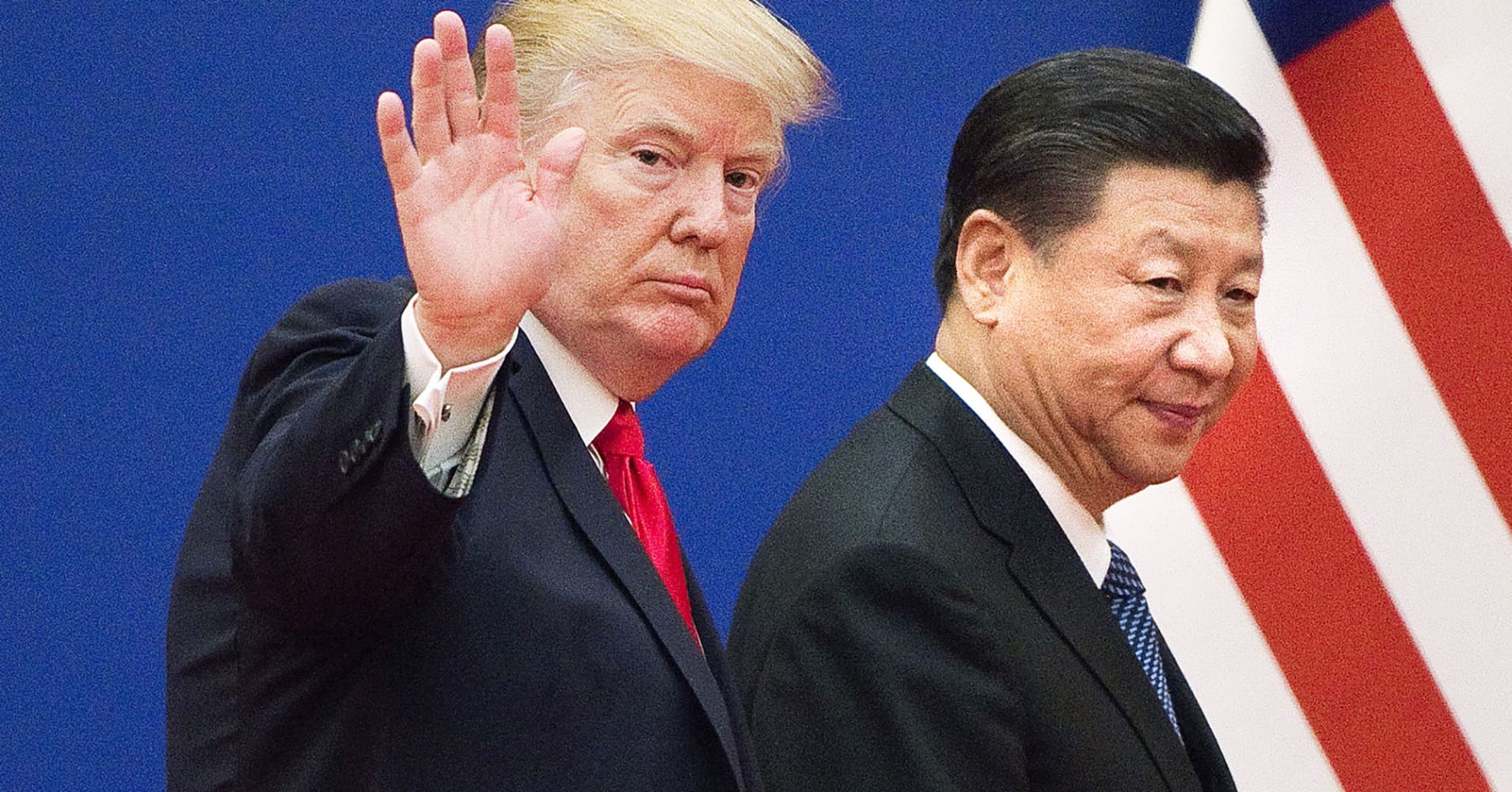Apple slashed its revenue forecast on Wednesday amid trade tensions between the U.S. and China, but it’s not the first company to signal trade impacts.
In a letter to investors, Apple CEO Tim Cook said the company saw lower-than-expected sales primarily in China. Cook told CNBC’s Josh Lipton that the trade dispute with the U.S. is exacerbating economic issues in China.
“It’s clear that the economy began to slow there in the second half and I believe the trade tensions between the United States and China put additional pressure on their economy,” Cook said Wednesday.
Apple shed 7 percent postmarket. Shares of semiconductor stocks fell after the announcement. Industrial giant Caterpillar, which draws a substantial amount of business from the Asia Pacific region, also saw its shares fall 3 percent in after-hours trade.
The tech executive’s comments come amid ongoing trade disputes between the Washington and Beijing governments. While the two countries temporarily agreed in early December to pause tariff escalations, headlines about the ongoing negotiations have continued to send jitters through the market. Prior to that agreement, China and the U.S. had gone back and forth threatening to implement tariffs on billions of dollars worth of imports.
U.S. stock futures fell late Wednesday following Cook’s letter.
Many business leaders have said an extended U.S.-China trade war would negatively impact business, or at the very least reduce visibility.
Apple previously sent a letter to U.S. Trade Representative Robert Lighthizer saying President Donald Trump’s proposed tariffs on China would affect a number of its products, increasing costs for consumers.
“It is difficult to see how tariffs that hurt U.S. companies and U.S. consumers will advance the Government’s objectives with respect to China’s technology policies,” Apple said in the September letter. “We hope, instead, that you will reconsider these measures and work to find other, more effective solutions that leave the U.S. economy and U.S. consumer stronger and healthier than ever before.”
In December, FedEx CEO Frederick Smith said “most of the issues that we’re dealing with today are induced by bad political choices.” He listed China as one of the company’s global concerns.
Alibaba founder Jack Ma previously said the frictions could last for two decades and would be “a mess” for all parties involved. Dell CEO Michael Dell told CNBC in July that the U.S. and China face a “mutually assured destruction” if trade relations collapse, adding that “no one will win” a trade war.
But not every company is pessimistic about its future in China.
Late December, Nike said it had not seen a sales impact from the ongoing trade dispute between the U.S. and China. CFO Andy Campion said, “We are bullish about our potential to deliver strong, sustainable growth in this important geography.”
In its fiscal second quarter, Nike reported that sales in China grew 26 percent to $1.54 billion, the fastest pace of any division.
In November, IBM CFO James Kavanaugh said the dispute with China will have a minimum impact on the legacy technology company. He said China has a “low single-digit contribution of IBM business but very high value, very strategically important.”
— CNBC’s Steve Kovach, John Melloy, Ari Levy and Jordan Novet contributed to this report.

